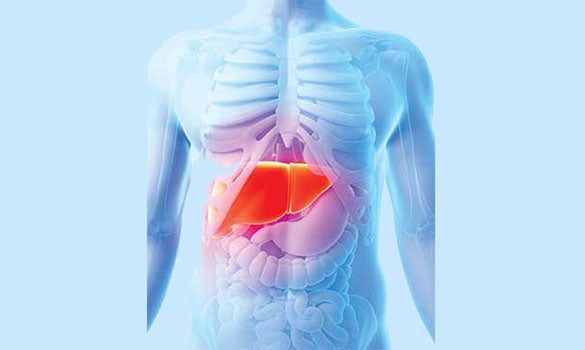
of liver cancer.
THE BURDEN AND CLINICAL OUTCOMES OF LIVER CANCER
Primary Liver Cancer or HCC (Hepatocellular Carcinoma) is endemic to the Asia-Pacific which shoulders almost 80% of the burden of this cancer worldwide. This is due to the high prevalence of chronic viral hepatitis B in our part of the world. Overall survival in advanced HCC is grave although outcomes have improved with recent advances in therapeutics.
When discovered in its early stages however, surgical resection for HCC confers potential cure. For HCC diagnosed at an early stage, defined as HCC within the Milan Criteria or BCLC Stage A (single lesion < 5 cm or 3 lesions or less each < 3 cm), a 5-year median overall survival of more than 60% is achievable.
Surgical resection is possible for some intermediate-stage HCC beyond the Milan Criteria but with understandably poorer overall survival. Unfortunately, surgical resection may not even be possible with many such patients.
Down-staging of intermediate-stage cancers to an earlier stage cancer before surgical resection is an established practice for many solid cancers including common cancers like breast and colorectal cancers. Currently available therapeutics for intermediate-stage breast and colorectal cancers are highly efficacious and the concept of neo-adjuvant therapy in these cancers before resection is thus feasible.
Unfortunately, previously available therapeutics for intermediate-stage HCC have not been very efficacious. Down-staging of intermediate-stage HCC to resection is not an established practice in HCC.
LOCO-REGIONAL THERAPY WITH SELECTIVE INTERNAL RADIATION THERAPY (SIRT) IN LIVER CANCER
Following a successful phase II clinical trial of Selective Internal Radiation Therapy (SIRT) for HCC that we published in 2014 (AHCC05 SirSA), SIRT with yttrium-90 is currently routinely used at the National Cancer Centre Singapore (NCCS) for treatment of intermediate-stage and advanced stage HCC. This is carried out in collaboration with our Nuclear Medicine physician and Interventional Radiologist colleagues at the Singapore General Hospital (SGH).
During SIRT, tiny microspheres coated with the radioactive nuclide yttrium-90 is introduced via an artery directly into the liver cancer. Yttrium-90 emits short range but powerful beta-radiation and is ideal for such radiation therapy known as brachytherapy.
Some of these intermediate and advanced stage HCC have responded so well to SIRT therapy that they have been down-staged and have become eligible for ablative therapy such as surgical resection, radio-frequency ablation and liver transplantation.
SURGICAL RESECTION FOLLOWING DOWN-STAGING WITH SIRT AT NCCS
A total of 9 patients managed by NCCS have undergone surgical resection following down-staging of HCC from TNM stage III or II to stage I. Surgical resection was carried out at a median of 7.2 months after initial treatment with SIRT. Surgical resection was found to be safe in such patients with no major post-surgical complications.
Excellent overall survival outcomes were found. At an average follow-up of 34.2 months, median survival has not been reached (see Graph 1).

INTERNATIONAL EXPERIENCE WITH DOWN-STAGING OF HCC TO RESECTION WITH SIRT
An international consortium of 13 centres (including NCCS) have pooled their experience of surgical resection and transplantation following downstaging of 51 cases of HCC with SIRT. This was part of a larger study that looks at liver resection and transplantation following SIRT for a number of different cancers [Retro-spective Post SIR-Spheres Surgery in Previously Unresectable Hepatic Malignancy Study (P4S)].
In this international study, at a median follow-up of 38.3 months after SIRT, median survival has also not been reached (Graph 2). The results are consistent with the NCCS experience.

FURTHER STUDIES
These clinical outcomes, while encouraging, must be confirmed by a formal prospective clinical trial. All the patients in the above studies were initially un-resectable and subsequent surgical resection was fortitious.
Of greater interest in the context of a clinical trial would be to study if outcomes in intermediate-stage patients can be improved by neo-adjuvant down-staging. Planning for a prospective study for this indication has commenced.
GPs can call for appointments through the GP Appointment Hotline at 6436 8288.
By: Prof Pierce Chow, Senior Consultant, Department of Surgical Oncology; Co-Director (Surgical), Comprehensive Liver Cancer Clinic, National Cancer Centre Singapore Academic Medical Program (Oncology), Duke-NUS Medical School
Professor Pierce Chow is an academic surgeon and Professor at the Duke-NUS Medical School. He is concurrently Senior Consultant Surgeon at the National Cancer Centre Singapore (NCCS) and the Singapore General Hospital (SGH), and NMRC Senior Clinician Scientist. Prof Chow’s interests are in oncology and the development of medical devices.
He has successfully led multidisciplinary teams in translational oncology research and has been protocol chair of multinational investigator-initiated clinical trials. He was conferred the 2012 NMRC National Outstanding Clinician Scientist Award for his research on liver cancer.














 Get it on Google Play
Get it on Google Play